Autumn is characterized by clear skies and cool weather, with forests colored and the wind gentle and the moon bright. However, it also brings four nuisances: bulking up, dryness, fatigue, and melancholy. How should one drink tea appropriately to address these?
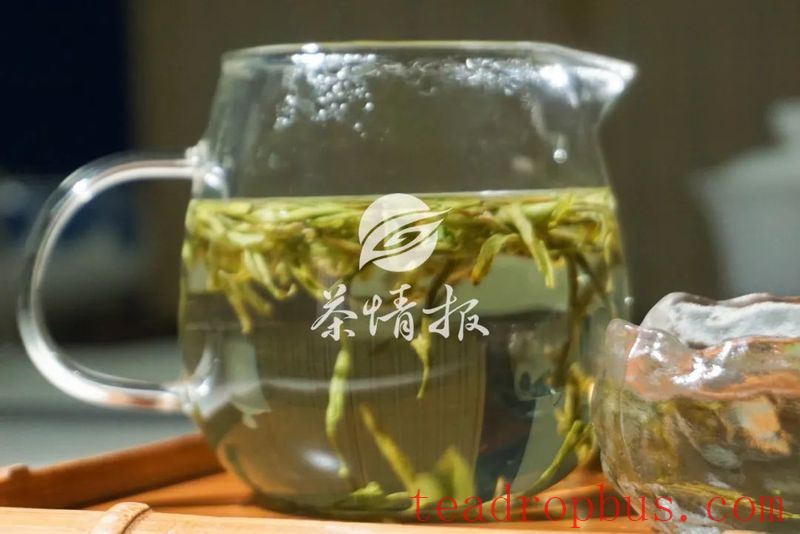
01 Bulking Up and Regulating the Intestines and Spleen
As the saying goes: after summer, even if healthy, one feels somewhat depleted. According to traditional Chinese medicine principles of nourishing yang in spring and summer and yin in autumn and winter, autumn and winter are the seasons for tonifying the body. Autumn is the best time to replenish and adjust the functions of various organs in the body.
However, tonifying doesn't mean indulging in meat and alcohol. To beat the heat, we tend to consume air conditioning, cold drinks, frozen foods, grilled meats, and beer daily during the summer. The spleen and stomach have been overworked and are exhausted but continue to function diligently. Therefore, before tonifying, it's essential to first regulate the digestive system, allowing the overburdened spleen and stomach a chance to rest. Otherwise, it can cause further harm.
To bulk up reasonably, start by regulating the spleen and stomach.
The modern lifestyle during summer makes it easy for dampness and cold to accumulate in the body, manifesting as symptoms such as thickening of the tongue coating, greasy intestines, constipation, diarrhea, bloating, discomfort in the stomach, acne, fatigue, excessive saliva while sleeping, and so on. Drinking Tea can help regulate the spleen and stomach. Drinking tea is the best daily method to cleanse the intestines. Tea can help eliminate fat and grease, provide vitamins and fiber to the intestines, aid detoxification and peristalsis, and expel toxins accumulated in the colon.
Aged teas like Pu'er, White Tea, and dark tea have mild properties and sufficient qi, helping the body sweat out dampness. Therefore, when drinking aged tea, one should use large cups or bowls and ensure it's hot. The microorganisms and beneficial bacteria in aged tea act as scavengers to regulate the gastrointestinal tract. The hydration from aged tea in the body helps carry away the yang fire accumulated in the body during summer. With neither the chill of raw tea or green tea nor the warmth of black tea, aged tea is the best tea to drink in autumn.
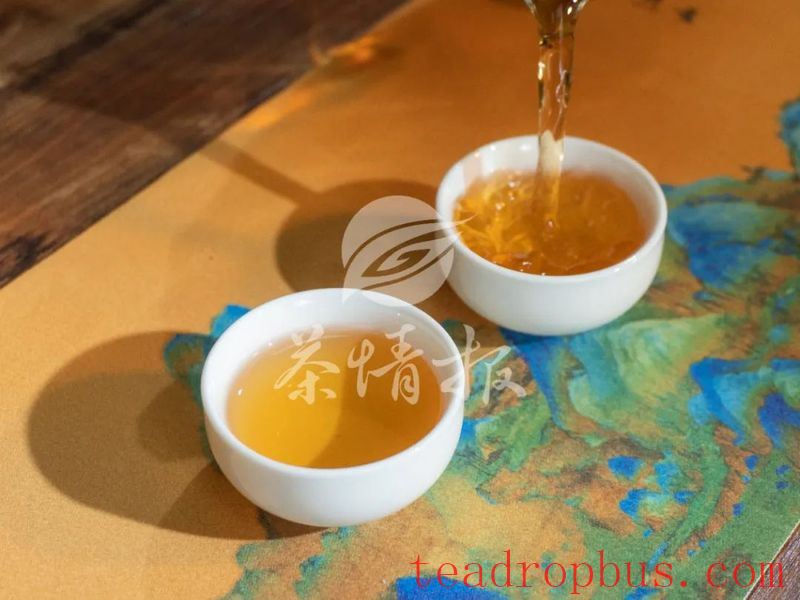
Oolong tea has a moderate nature, neither too warm nor too cold, making it most suitable for autumn. Oolong tea has strong disinfectant and anticancer properties. Symptoms of “yang fire” include throat discomfort, swollen gums, and oral ulcers. Green tea is too cold, while black tea is too warm; oolong tea is the best choice for “balancing fire.” Women often worry that tonifying will add extra weight. Known as “weight-loss tea,” oolong tea can help tea drinkers eliminate excess fat while tonifying.
Ripe tea refers specifically to tea made from large-leaf Yunnan sun-dried green tea through artificial fermentation. The fermentation process is the key focus of ripe tea research. Experiments at the Pu'er Tea College of Yunnan Agricultural University recorded the process of ripe Pu'er decomposing oil droplets. The mellow and mild ripe tea can coat the surface of the stomach, forming a protective layer. While fighting inflammation and bacteria, it can also nourish and protect the stomach.
02 Relieving Dryness and Moisturizing the Lungs
“Autumn dryness” refers to discomfort caused by dry weather in autumn, including nasal sensitivity, dry mouth, tongue, skin, hair, lips, colds, coughs, nosebleeds, and more. Plain water is less effective than tea at hydrating and relieving dryness, and the beneficial components in tea can significantly alleviate and “treat” various discomforts associated with autumn dryness.
According to the Inner Canon: spring corresponds to the liver, summer to the heart, autumn to the lungs, and winter to the kidneys. The lungs control qi and respiration, and the human body relies on the lungs to breathe. When the respiratory system is functioning well, the overall health improves. Moistening the lungs nurtures the original source of vital energy. As long as the vital energy is abundant, immunity naturally increases. Autumn is a critical period for nurturing the lungs, and taking care of the lungs benefits the entire body.
Traditional Chinese medicine believes that autumn corresponds to lung qi. The lungs control qi and respiration and open through the nose. Dry autumn weather can cause respiratory discomfort, which tea can alleviate and prevent.
Drinking high-quality tea in autumn replenishes the body's water needs, not only aiding hydration and lung moisture but also providing rich nutrients that boost immunity and prevent illness, promoting healthy living. Tea effectively relieves various discomforts related to autumn dryness and is better at hydrating and relieving dryness than plain water.
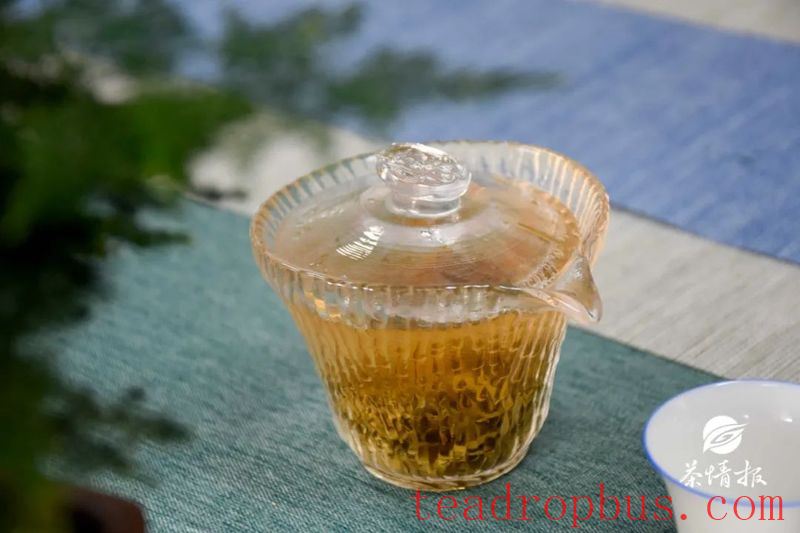
Among the mentioned teas, ripe tea, following black tea, is another versatile tea that can be combined with honey, dairy products, roses, chrysanthemums, tangerine peel, and other ingredients. It moisturizes the lungs and generates fluids, while the cleansing effects of ripe tea on the bowels benefit the large intestine. In traditional Chinese medicine, the lungs and large intestine are internally and externally related. If the large intestine's transmission function is normal, it can also promote the dispersion of lung qi.
“Drink floral in spring, green in summer, and oolong in autumn.” Oolong tea, also known as green tea, is a partially Fermented tea between green and black tea. Its leaves turn a dark brown color when brewed, with the middle part remaining green and the edges turning red, earning it the nickname “green leaves with red borders.” It combines the fragrance and natural floral aroma of green tea with the rich taste of black tea, neither too cold nor too hot. It has a moderate temperature, moisturizing the skin, soothing the throat, quenching thirst, clearing internal heat, and enabling the body to adapt to changes in the natural environment.
Warm dryness still carries the residual heat of summer. Sweet and mellow white tea is refreshing and elegant, and crucially, it moistens the lungs and clears heat. Cold dryness requires dispelling cold and moisturizing. Moderate consumption of black tea uplifts the mood and warms the body. Black tea offers 13 benefits to the human body!
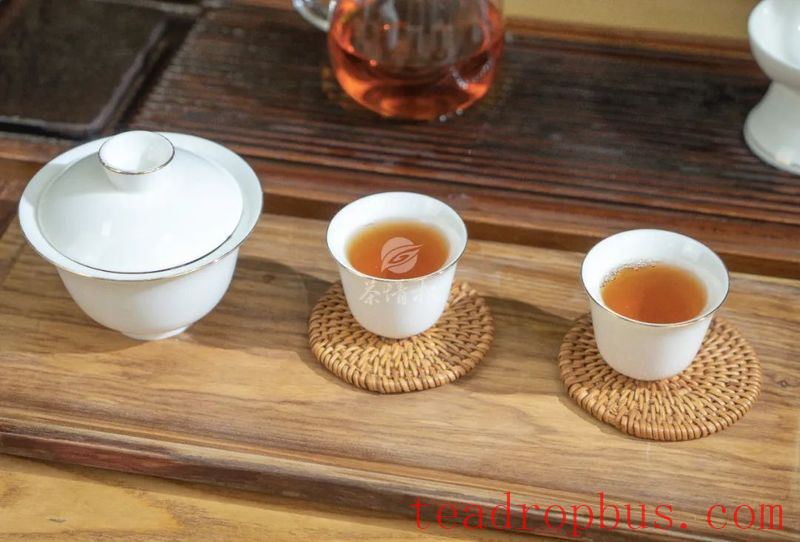
03 Alleviating Fatigue and Refreshing the Mind
The saying goes, “springtime drowsiness, autumn fatigue, summer dozing, and winter sleepiness,” a phrase often used by those who love to nap.
It's understandable that people feel sleepy during the hot summer nights when they don't get enough rest. However, in the cool and pleasant autumn, because the body sweats excessively in the heat of summer, causing an imbalance in water and salt metabolism, weakening of the digestive system, and increased burden on the cardiovascular system, the body enters a stage of excessive depletion. As summer turns to autumn, the climate becomes cooler, and sweating decreases. The body enters a periodic recovery phase where water and salt metabolism begins to balance, the burden on the cardiovascular system eases, and the digestive system functions return to normal. However, at this point, people may experience a sense of inexplicable fatigue, known as “autumn fatigue.”
Tea can refresh the mind, lighten the body, and improve clarity. Rich in caffeine and other substances, tea combats fatigue without the stimulating effects of Coffee. Green tea and raw Pu'er are excellent choices.
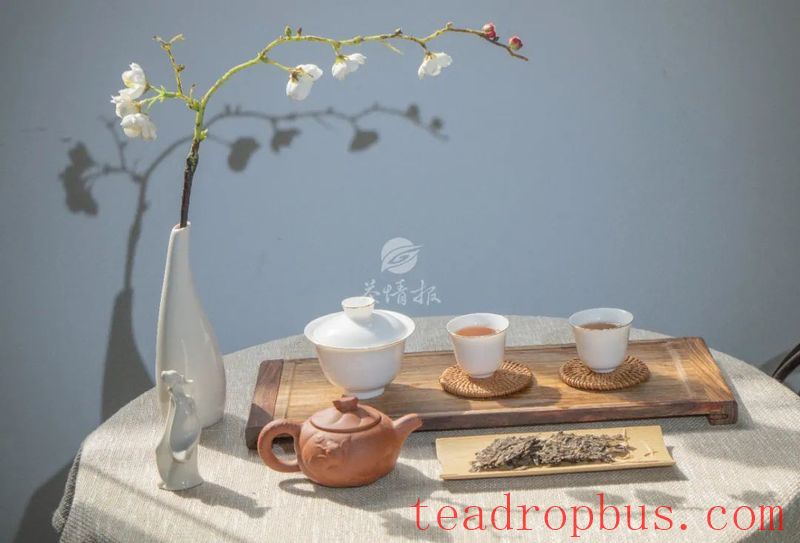
04 Dispelling Melancholy and Unblocking Stagnation with Aromatic Compounds
The term “autumn melancholy” refers to sadness and confusion brought about by the bleak autumn scenery. It originates from Chuci · Jiubian: “How sorrowful! The atmosphere of autumn. So desolate, the grass and